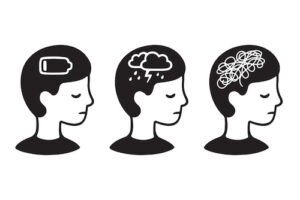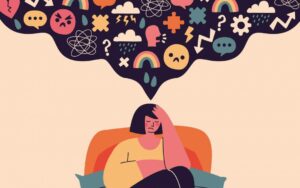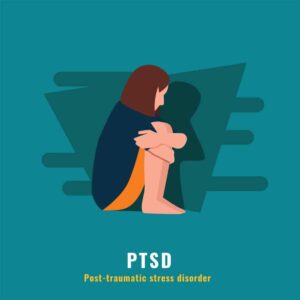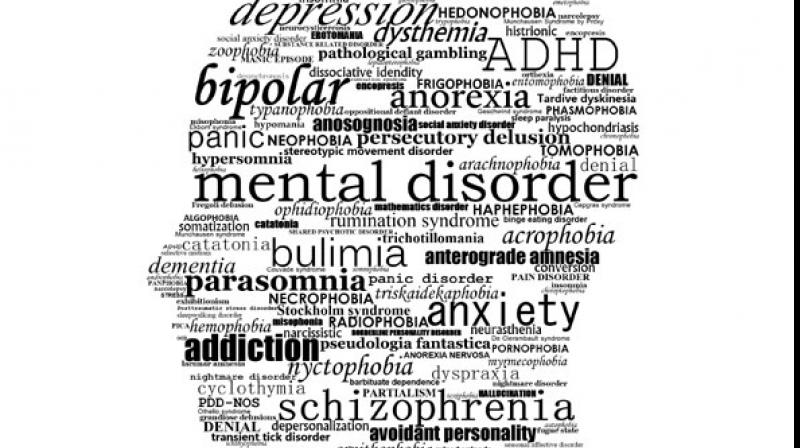Contents
What Are Mental Disorders?

Mental disorders are conditions that can affect an individual’s thoughts, feelings, behaviors, and general sense of well-being. They range from milder conditions such as ADD to serious illnesses such as psychosis. Mental disorders can be triggered by both biological and environmental factors. The first step is recognizing the signs of a mental disorder. Signs may include gaining or losing weight, changes in sleep patterns, excessive negativity, changes in social interactions, withdrawal from activities previously enjoyed. If you think you may have a mental disorder contact your primary care provider or mental health professional for more information.
Mental disorders are conditions that affect your mood, thinking, and behavior. They were once thought of as a sign of personal weakness but now we know that they are caused by both biological and environmental factors. There are many different types of mental disorders that can cause symptoms like changes in eating or sleeping, excessive negativity, withdrawal from things you used to enjoy. If you notice any of these signs you should contact a primary care provider or mental health professional as soon as possible. This way you can begin treatment and improve your overall well-being.
Signs Of Mental Disorders
It can be difficult to tell if you do have a mental disorder because there are many different types and each one can cause different symptoms. Knowing the signs of a mental disorder is the first step in getting treatment for your condition so you can start living your best life. Some of the most common signs include:

- Gaining or losing weight
- Changes in sleep patterns
- Excessive negativity
- Changes in social interactions
These changes could be caused by external factors such as a death in the family or changing schools but if they last for more than a month, it’s time to take notice. If you experience any of these signs it is best to contact your primary care provider or mental health professional as soon as possible so you can get treatment and start living your best life.
Types of Mental Disorders
The most common types of mental disorders are
- Depression
- Schizophrenia
- Bipolar disorder
- Anxiety
- ADHD
- PTSD
There are also other less common disorders such as anorexia nervosa and bulimia nervosa.
Depression
 Depression is the most common of all mental disorders. It can feel like a black cloud has enveloped you no matter how hard you try to prevent it. Depression is more than just feeling sad or blue- there are intense feelings of sadness that don’t go away no matter what you do to make it easier on yourself. You might find yourself thinking negative thoughts about yourself and others without even realizing it. Fortunately, there are treatments for this disorder that range from psychotherapy to prescription medication including anti-depressants. They not only ease the symptoms of depression but they can help you improve your day-to-day life at home, on the job, and in your personal relationships.
Depression is the most common of all mental disorders. It can feel like a black cloud has enveloped you no matter how hard you try to prevent it. Depression is more than just feeling sad or blue- there are intense feelings of sadness that don’t go away no matter what you do to make it easier on yourself. You might find yourself thinking negative thoughts about yourself and others without even realizing it. Fortunately, there are treatments for this disorder that range from psychotherapy to prescription medication including anti-depressants. They not only ease the symptoms of depression but they can help you improve your day-to-day life at home, on the job, and in your personal relationships.
Schizophrenia
Schizophrenia is another common type of mental disorder. It is a chronic condition that affects more than 2 million adults around the world. The symptoms of schizophrenia are divided into “positive” symptoms which are not present in healthy individuals. These include things like delusions, hearing voices or hallucinations, and incoherent thoughts. Negative symptoms are those that are seen in healthy individuals but not in schizophrenics. These include lack of emotion, lack of motivation, and social withdrawal. There is also a condition known as a schizoaffective disorder which has both positive and negative symptoms. There are medications that can be used to treat these conditions but there is no cure for them at this time.
Bipolar disorder
 Bipolar disorder, also known as manic-depressive illness, is another common mental disorder. Those who have bipolar disorder switch moods very rapidly from being extremely high to be extremely low. They might go for days without sleep and behave erratically. It is usually treated with medications including antipsychotics, mood stabilizers, and anti-depressants.
Bipolar disorder, also known as manic-depressive illness, is another common mental disorder. Those who have bipolar disorder switch moods very rapidly from being extremely high to be extremely low. They might go for days without sleep and behave erratically. It is usually treated with medications including antipsychotics, mood stabilizers, and anti-depressants.
Anxiety disorders
Anxiety disorders are characterized by intense feelings of fear or worry that lead to physical symptoms like sweating, an increased heart rate, nausea, etc. There are many different subtypes of anxiety disorders including panic disorder, obsessive-compulsive disorder (OCD), phobias, and post-traumatic stress disorder.
ADHD
ADHD is a chronic condition that affects millions of people each year. You might know someone who has this condition or you may even have it yourself. Those with ADHD find it difficult to focus on tasks and sit still. It can be treated with medications that increase dopamine levels in the brain, behavior therapy, and/or parent training.
PTSD
 Post-traumatic stress disorder (PTSD) develops after exposure to an extremely traumatic event such as war, physical or sexual abuse, assault, etc. These experiences lead to flashbacks of the event which trigger intense feelings of fear and other negative emotions. It can lead to other psychological problems like depression, substance abuse, etc. There are medications that can help treat PTSD but it is best to seek out treatment soon after the traumatic event occurs so you don’t let it get too out of hand.
Post-traumatic stress disorder (PTSD) develops after exposure to an extremely traumatic event such as war, physical or sexual abuse, assault, etc. These experiences lead to flashbacks of the event which trigger intense feelings of fear and other negative emotions. It can lead to other psychological problems like depression, substance abuse, etc. There are medications that can help treat PTSD but it is best to seek out treatment soon after the traumatic event occurs so you don’t let it get too out of hand.
All these mental disorders exist for a reason- something happened in your life to make them develop. You can’t necessarily blame yourself for your disorder but you are responsible for getting help by seeking out the treatment options that will improve your quality of life.
OCD
OCD causes unwanted thoughts and fears to enter the mind repeatedly. Those who have OCD might hoard items that they don’t need or wash their hands frequently just because it doesn’t feel “clean” enough.
People with ADHD often feel restless and fidgety and find it difficult to concentrate on things like schoolwork for a long period of time. The longer they go without something exciting to do, the more likely it is that they’ll get into trouble for acting out.
Childhood Mental Disorders

One in five children in the United States has a mental, emotional, or behavioral disorder according to the Centers for Disease Control and Prevention (CDC). These disorders can affect a child’s ability to learn, interact with others, and cope with stress. The most common types of childhood mental disorders are ADHD, anxiety disorders, autism spectrum disorders, and disruptive behavior disorders.
ADHD/ADD
ADHD is a condition that causes children to have trouble paying attention and focusing on tasks. They might be very hyperactive and impulsive which can lead to problems in school and with relationships. Anxiety disorders cause children to feel intense fear or worry about things that usually wouldn’t cause them anxiety. This can lead to problems like avoidance of social situations, panic attacks, etc. Children who have autism spectrum disorders struggle with developing social skills, difficulty communicating or moving in a normal way. The symptoms are usually apparent before age 3. Disruptive behavior disorders are similar to ADHD but are much more severe. Symptoms can include aggression towards people and animals, deliberate destruction of property, fire-setting, etc.
Autism Spectrum Disorder
A mental, emotional, or behavioral disorder is a condition that causes significant distress and difficulty in functioning. These disorders can affect children and adults of all ages and races. They can affect individuals’ ability to think clearly, manage their emotions, make decisions, etc.
Disruptive Behavior Disorders
disruptive behavior disorders are similar to ADHD but are much more severe. Symptoms can include aggression towards people and animals, deliberate destruction of property, fire-setting, etc.
Separation Anxiety Disorder
Separation anxiety disorder is the fear of being away from home or people one is close with. This can lead to difficulty at school, difficulty sleeping alone, and social isolation. Separation anxiety can even lead to physical symptoms such as nausea, vomiting, dizziness, and headaches.
General Anxiety Disorder
General anxiety disorder causes severe and unnecessary worry about everyday things (such as money or health). GAD also causes the sufferer to feel restless and tired because they can’t relax. This often leads to panic attacks. Panic attacks are sudden, intense feelings of fear that last for several minutes. These can cause chest pain, heart palpitations, trouble breathing, dizziness, etc.
Tourette’s Disorder
Tourette’s disorder causes the sufferer to feel as though they have to perform repetitive motions or excessive movements such as blinking, throat clearing, etc. This is usually combined with vocal tics such as grunting and barking.
Preventions For Mental Disorders

Currently, there is no preventative measure for mental disorders. Some treatments may help reduce risk factors but cannot promise to eliminate the possibility of acquiring a disorder.
There are many different types of mental disorders that affect millions of people worldwide. Mental illnesses can cause mild to severe disruptions in daily life and should be treated as soon as possible.
Mental disorders occur due to a complex interaction of multiple factors such as genetics, environment, stress level, and lifestyle. Although some mental illnesses have been linked to chemical imbalances in the brain that can be treated by medications or therapy, not all mental disorders have known causes at this time.
Some the Preventions for mental disorders can include:
- Maintaining a healthy diet
- Staying active
- Getting enough sleep
- Practicing mindfulness techniques to reduce stress
- Educating yourself about your disorder
- Talking to a therapist or counselor
- Joining a support group to connect with others who have a similar diagnosis
Knowing the warning signs and symptoms to look out for can help you prevent a mental illness from worsening. It can also help you identify when it’s time to seek help from a mental health professional.
Treatment For Mental Disorders
Mental disorders vary from person to person and could range from life-threatening illnesses such as psychosis to milder conditions such as ADD. They are still a cause for concern because it’s easy to live with a disorder without knowing that you have one. Mental disorders can be caused by a combination of biological, psychological, and environmental factors. The goal is, of course, to get treatment as soon as possible so you can start living your best life. There are treatment options for all types of mental illnesses.
Medication

Medication is one option, although it does not work for everyone. Also, there can be side effects that you may experience. If you do use medication, your doctor will likely test to see if it is working and adjust the dosage as needed.
Therapy
There are also different forms of therapy that are available to help treat your condition. Therapy is another option for those who cannot or do not wish to use medication as a treatment plan. This includes talk therapy such as cognitive-behavioral therapy (CBT) or another type of therapy.
Lifestyle changes

Lifestyle changes are also recommended treatment options. Examples include maintaining a healthy diet, staying active, getting enough sleep, and practicing mindfulness techniques to reduce stress. Finding the right medication or therapy option for your needs is important because it will help you get to the cause of your disorder so you can start living your best
Make sure you consult with your primary care provider or mental health professional before trying any medications or therapies since they can have negative side effects. They will be able to recommend the best course of action for you.
Lifestyle changes are often part of treatment plans too, so make sure to ask your doctor about these changes. Making positive lifestyle choices can help improve your mood and overall well-being which is an important step in treating mental disorders!
Finding the right treatment provider for your needs
Ideally, you should consult with a psychiatrist or psychologist, but any primary care provider can help guide you in the right direction. They may be able to recommend the best treatment options based on your symptoms and personal needs. The main thing is to not wait! If you suspect that you have a mental disorder, contact your doctor or mental health professional.
In conclusion, Mental disorders are very common in today’s society. There are many different types of disorders that can affect people differently. Having a mental disorder is not your fault and there are treatments you can do to help improve your quality of life.
A Word From MantraCare
Your mental health — your psychological, emotional, and social well-being — has an impact on every aspect of your life. Positive mental health essentially allows you to effectively deal with life’s everyday challenges.
If you are looking for affordable Online Counseling MantraCare can help: Book a trial therapy session


